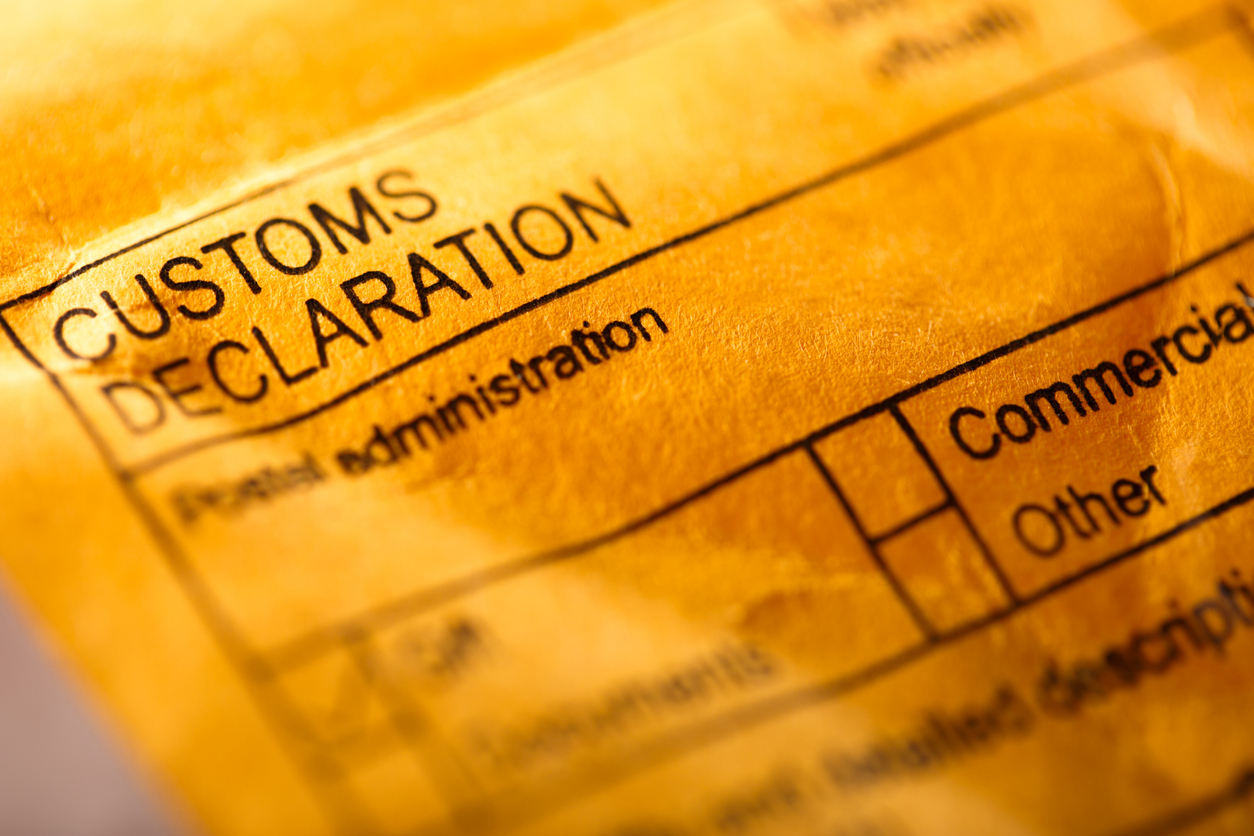A federal jury returned a $24 million judgment against an importer of Chinese steel pipe fittings, finding that it knowingly violated the False Claims Act by evading applicable anti-dumping duties. The importer says its non-payment of duties was “objectively reasonable.”
False Claims Act lawyers are monitoring the appeal in U.S. v. Sigma Corp., which is scheduled for oral argument before a U.S. Court of Appeals for the Ninth Circuit panel on Jan. 10, 2023. A qui tam whistleblower lawsuit involving an importer’s alleged knowing failure to pay anti-dumping duties on pipe fittings imported from China, the case raises hugely controversial questions relating to the False Claims Act’s knowledge requirement.
Applicability of Safeco Under the False Claims Act
Under the False Claims Act, a defendant may only be held liable for knowingly submitting false claims to the government or, under the statute’s so-called reverse false claims provisions, knowingly making false statements to avoid or decrease payments owed to the government. The term “knowingly” is defined to include actual knowledge, deliberate ignorance, or reckless disregard.
At issue in the Sigma appeal is whether and, if so, to what extent, the “objectively reasonable interpretation” defense articulated by the U.S. Supreme Court in its 2007 Safeco Insurance Company of America v. Burr decision is available to defendants under the False Claims Act. In Safeco, the Supreme Court held that a Fair Credit Reporting Act defendant did not act “willfully” because its interpretation of an ambiguous statutory requirement was objectively reasonable and there was no authoritative guidance warning it away from its erroneous interpretation.
The question is vexing courts. In U.S. v. Allergan Sales, a U.S. Court of Appeals for the Fourth Circuit panel determined in 2022 that the Safeco objectively reasonable interpretation defense was available under the False Claims Act, warranting dismissal. The full Fourth Circuit, however, subsequently granted rehearing en banc and vacated that opinion, while nevertheless affirming dismissal by an equally divided, 7-7 vote.
Meanwhile, in U.S. v. SuperValu Inc., a U.S. Court of Appeals for the Seventh Circuit panel — over a vigorous dissent — not only adopted Safeco’s objectively reasonable interpretation defense under the False Claims Act, but took the arguably extreme position that, in applying it, a defendant’s contemporaneous “subjective intent” is irrelevant. Specifically, according to the court’s 2021 SuperValu decision, inasmuch as the Safeco standard is “objective,” it is irrelevant whether the defendant actually held the claimed objectively reasonable interpretation at the time that it submitted its false claim, or had instead submitted those claims in bad faith and then later, with the help of defense counsel after being sued under the False Claims Act, “concocted” an objectively reasonable interpretation of the relevant statute or regulation after the fact.
The SuperValu decision is currently subject to a pending petition for certiorari. [The petition for certiorari was granted on January 13, 2023—Ed.].
The U.S. solicitor general recently filed an amicus brief with the Supreme Court arguing that the Seventh Circuit erred in SuperValu and that certiorari should be granted. Another petition for certiorari was recently filed from the U.S. Court of Appeals for the Eleventh Circuit’s decision in Olhausen v. Arriva Medical LLC, which applied Safeco under the False Claims Act.
The Scope of the Anti-Dumping Order in Sigma
In the case currently before the Ninth Circuit, the whistleblower Island Industries Inc., a domestic manufacturer of parts for fire-protection sprinkler systems, filed a False Claims Act lawsuit against Sigma, a seller of competing products imported from China. Island alleged that Sigma falsely claimed on its customs entry documents that the parts it was importing were not subject to any anti-dumping duties when in fact they were subject to duties of 182.9% under a 1992 U.S. Department of Commerce anti-dumping order.
Anti-dumping duties are extra import duties imposed on imports sold in the U.S. at prices less than fair value — i.e., dumped — or which benefit from foreign government subsidies. They are intended to level the playing field for domestic industries.
In addition to the anti-dumping order, Island relied on a 1992 scope ruling issued by the Commerce Department in connection with pipe fittings imported by another importer, Sprink Inc. The so-called Sprink scope ruling determined that Sprink’s fittings — which were materially identical to those imported by Sigma — were within scope of an identically worded Commerce Department anti-dumping order covering the same category of imports from Taiwan.
After receiving a subpoena from the U.S. Department of Justice and thereby learning that it was under investigation for evading anti-dumping duties, Sigma applied to the Commerce Department for its own scope ruling. The Commerce Department issued a ruling that Sigma’s pipe fittings were within scope of the anti-dumping order, while noting that the agency was not bound by its prior Sprink scope ruling.
Sigma then appealed to the U.S. Court of International Trade. The CIT held that the Commerce Department scope decision was unreasonable because “it was not plainly apparent from the language” of the anti-dumping order that Sigma’s pipe fittings were covered. The Commerce Department’s prior Sprink scope ruling “would seem to be dispositive,” the CIT observed, but, in its decision, the Commerce Department “for some reason, chose to dismiss [that ruling] as nonbinding.” The CIT thus remanded the matter back to the Commerce Department for a full scope inquiry.
On remand, the Commerce Department again concluded that Sigma’s imported pipe fittings were within scope of the anti-dumping order. In addition, the Commerce Department clarified that the Sprink scope ruling was “informative” because it involved a “nearly identical” product.
Armed with this administrative record, Sigma turned to the U.S. District Court for the Central District of California — where the False Claims Act case was pending and by then unsealed under the caption U.S. v. Vandewater International Inc. — and argued that it was entitled to dismissal of the lawsuit as a matter of law under Safeco.
Specifically, according to Sigma, the false statements that it made in its customs entry documents denying that it owed anti-dumping duties could not have been made knowingly, given the ambiguity that the CIT identified in the anti-dumping order. As the CIT had determined, it was not plainly apparent from the language of that order that Sigma’s pipe fittings were covered, warranting a full scope inquiry. Sigma thus argued that its false statements were consistent with an objectively reasonable interpretation of the anti-dumping order.
The district court rejected Sigma’s Safeco argument, the case was tried, and the jury returned a $24 million verdict against Sigma.
The Issues Before the Ninth Circuit
On appeal, Sigma now contends that the district court erred in denying it relief as a matter of law under Safeco. The government, which declined to intervene in the district court, has submitted an amicus brief in support of Island and affirmance of the jury verdict. Island and the government advance a series of arguments on the appeal.
First, they maintain that the objectively reasonable interpretation defense is simply unavailable under the False Claims Act because Safeco involved the Fair Credit Reporting Act, a different statute with a different scienter requirement. Unlike the FCRA, the False Claims Act’s scienter requirement has three prongs focusing on the defendant’s contemporaneous state of mind. Additionally, courts have long held that the False Claims Act requirement’s deliberate-ignorance and reckless-disregard prongs reach the ostrich-type situation, where a defendant failed to make simple inquiries or pursue available avenues of clarification that would have revealed the falsity of its claims. Moreover, unlike the FCRA, the False Claims Act — an anti-fraud statute designed to protect the public fisc — imposes on those who transact with the government a duty to make “limited inquiry” to ensure that the claims they submit and the statements they make are accurate.
Island and the government also argue that Safeco is distinguishable because in Safeco the defendant relied on an objectively reasonable interpretation that it held contemporaneously — i.e., at the time it committed the alleged violations. Thus, as the government argues in its brief: “Safeco does not stand for the extraordinary proposition that any post hoc interpretation developed in subsequent litigation can preclude liability, regardless of whether the defendant actually held that interpretation at the time of the conduct at issue.” Notably, this is contrary to the position taken by the Seventh Circuit in SuperValu.
Island and the government cite the Supreme Court’s 2016 Halo Electronics Inc. v. Pulse Electronics decision. There, the court stated that “culpability is generally measured against the knowledge of the actor at the time of the challenged conduct” and explained that nothing “in Safeco suggests that we should look to facts that the defendant neither knew nor had reason to know at the time he acted.”
Island and the government contend that, given the limitations on Safeco delineated in Halo, Sigma cannot rely on the objectively reasonable interpretation defense because there was no evidence that Sigma was even aware of the anti-dumping order — much less construed it as not covering its imports — when it submitted its false customs entry documents. Instead, they say, by Sigma’s own admissions at trial, it behaved ostrich-like, failing to conduct any inquiry or search with respect to potentially applicable anti-dumping orders or scope rulings, and purportedly did not become aware of the anti-dumping order until after receiving the Justice Department subpoena.
Island and the government additionally argue that the Sprink scope ruling constituted authoritative guidance which warned Sigma away from its erroneous interpretation of the anti-dumping order. Sigma disputes this on the ground that the Commerce Department stated that the Sprink Scope Ruling was nonbinding. The government, however, urges that agency guidance documents and final determinations like Commerce Department scope rulings are inherently nonbinding on third parties yet still can place them on notice that a practice is illegal.
Possible Outcomes
It is difficult to predict how the Ninth Circuit will rule. Courts seem inclined to apply Safeco in the False Claims Act context. The Ninth Circuit, however, may well reject the extreme approach adopted by the Seventh Circuit in SuperValu — i.e., that a defendant’s contemporaneous “subject intent” is irrelevant, and that interpretations devised post hoc suffice. This would accord with the Ninth Circuit’s 2010 unpublished decision in U.S. v. Chen, where the court stated — without mentioning Safeco — that a False Claims Act defendant’s “good faith interpretation of a regulation” could preclude False Claims Act liability “not because his or her interpretation was correct or ‘reasonable’ but because the good faith nature of his or her action forecloses the possibility that the scienter requirement is met.”
It would also be consistent with Halo. In SuperValu, the Seventh Circuit purported to distinguish Halo as inapplicable to Safeco analysis under the False Claims Act, a point urged by Sigma in its brief. The Seventh Circuit’s logic distinguishing Halo, however, is impenetrable, at least to this practitioner.
Should the Ninth Circuit adopt the Seventh Circuit’s approach, Sigma will have outdone the defendants in SuperValu. Sigma not only devised a post hoc interpretation. It also pursued parallel administrative proceedings resulting in a record it has been able to parlay into support for the reasonableness of that interpretation.
Either way, however, the Sprink scope ruling may well prove Sigma’s stumbling block. The law is not well developed as to what constitutes so-called authoritative guidance — Safeco did not precisely define it. Yet the government’s logic that the agency document need not be binding as Sigma urges is persuasive. As the Taxpayers Against Fraud Education Fund aptly argued in its amicus brief to the Seventh Circuit in SuperValu, it is “logically inconsistent to speak of ‘binding guidance’ that would ‘warn’ defendants. If an interpretation is binding, then it provides the governing rule, not guidance, and does not warn defendants. It sets the rules.”
Furthermore, according to Island and the government, the evidence at trial in Sigma established that the Sprink scope ruling was sufficiently specific to alert any reasonable importer that the anti-dumping order covered Sigma’s imports. Sigma’s own executives admitted at trial that they understood their imports were covered immediately upon reading the order, and concluded based thereon that they should stop importing the parts in question from China.
Determining that the Sprink scope ruling sufficiently warned Sigma away from its erroneous interpretation of the anti-dumping order potentially could obviate the need for the Ninth Circuit to resolve the more difficult question whether reliance on post hoc interpretations is permissible under Safeco. Whatever the outcome of the Sigma appeal, there is possibility it deepens the disagreement about whether and how to apply Safeco under the False Claims Act, increasing the likelihood that the Supreme Court will grant certiorari in SuperValu. [The Supreme Court granted certiorari in SuperValu on Jan. 13, 2023—Ed.].
This article first appeared as an Expert Analysis column in Law360.com.





